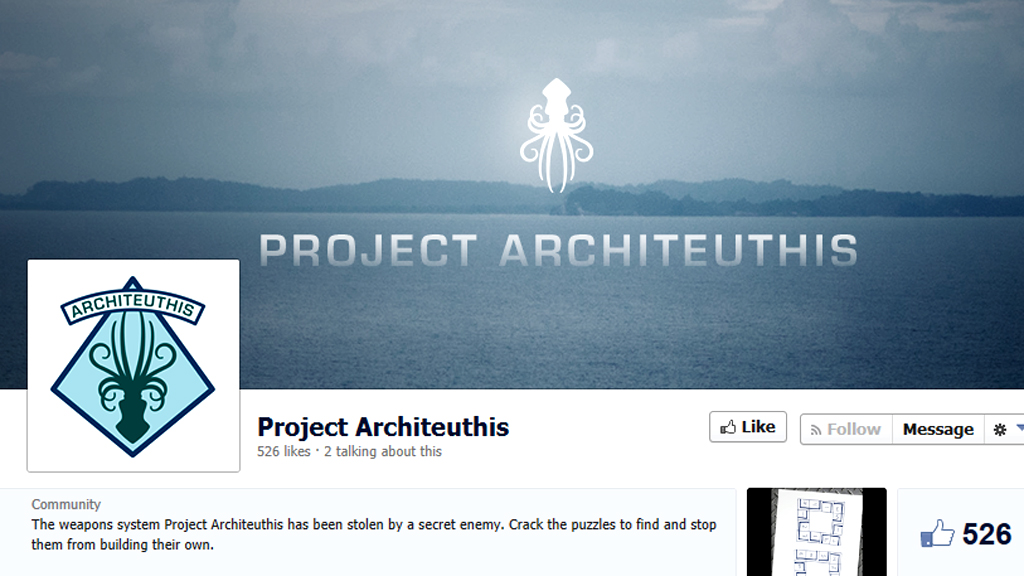Code breakers, your country needs you
Maybe it is time to forget traditional recruitment centres if you want a career in the military. The US Navy is looking for code breakers who can crack a puzzle and is using Facebook to find them.

An 18-day game, based around a “fictitious US Navy top-secret weapons system project”, is “designed to attract the type of minds Navy Cryptology is looking to recruit”.
Called Project Architeuthis (the Latin name for giant squid), it challenges people to find a “mysterious enermy” who has captured the chief architect of a secret weapon so he can make his own version.
A “brave” navy cryptologist manages to board a “getaway sub” and has only one way of sending messages to the good guys – by using social media – with the aim of secretly alerting fellow sailors to her location.
Through social networking site Facebook, would-be recruits have to solve a number of puzzles, which become harder as the game goes on. The first 10 people to provide the correct answer will win Project Architeuthis.
Following criticisms of the National Security Agency (NSA), the US Navy has enlisted the help of PR agency Lowe Campbell Ewald to publicise what it is doing.
Niche target
Kathleen Donald, the company’s chief operating officer, said: “Project Architeuthis is an innovative way to interact with a niche target. The internet is home to communities of people who enjoy complicated, story-based puzzle solving as a recreational pastime.
“Among them exists the kind of minds Navy Cryptology is looking to attract. Games like this are a smart and engaging way to increase social traffic with intelligent, problem-solving people.”
Commander Brent Phillips, director of US Navy recruitment, said: “We’re always looking for creative ways to engage with young men and women, especially those who may be interested in the exciting work we do around the world.”
In 2013, in the midst of claims from Edward Snowden that US and British intelligence agencies had been eavesdropping on people’s personal communications, the Guardian reported that a GCHQ team had been developing ways to read encrypted data traffic from Facebook.
Facebook told Channel 4 News at the time that it “is not and has never been part of any programme to give the US or any other government direct access to our servers”, adding: “We do not provide any government organisation with direct access to Facebook servers.”
GCHQ
Cheltenham-based GCHQ also launched an online code-breaking challenge to attract recruits. Aspiring spooks were given a code and told to follow the trail of cyber clues to be in with a chance of working at GCHQ.
A year earlier, a smiliar challenge – Can you crack it? – attracted 5,000 applicants, of whom 170 were taken forward. The agency said it needed people “who have evolved with the ever-changing digital world” to tackle “online threats”.
The aim was to find mathematicians, code breakers and “ethical hackers” from across the country who wanted to follow in the footsteps of computing greats like Alan Turing, whose efforts at Bletchley Park during world war two provided key intelligence for the allies by deciphering messages encrypted by the German Enigma machine.